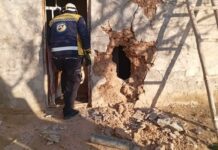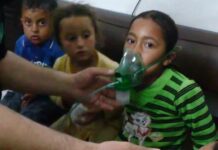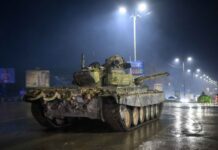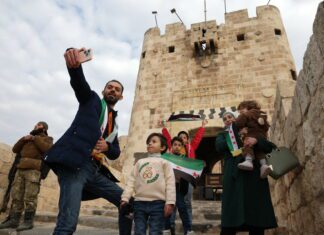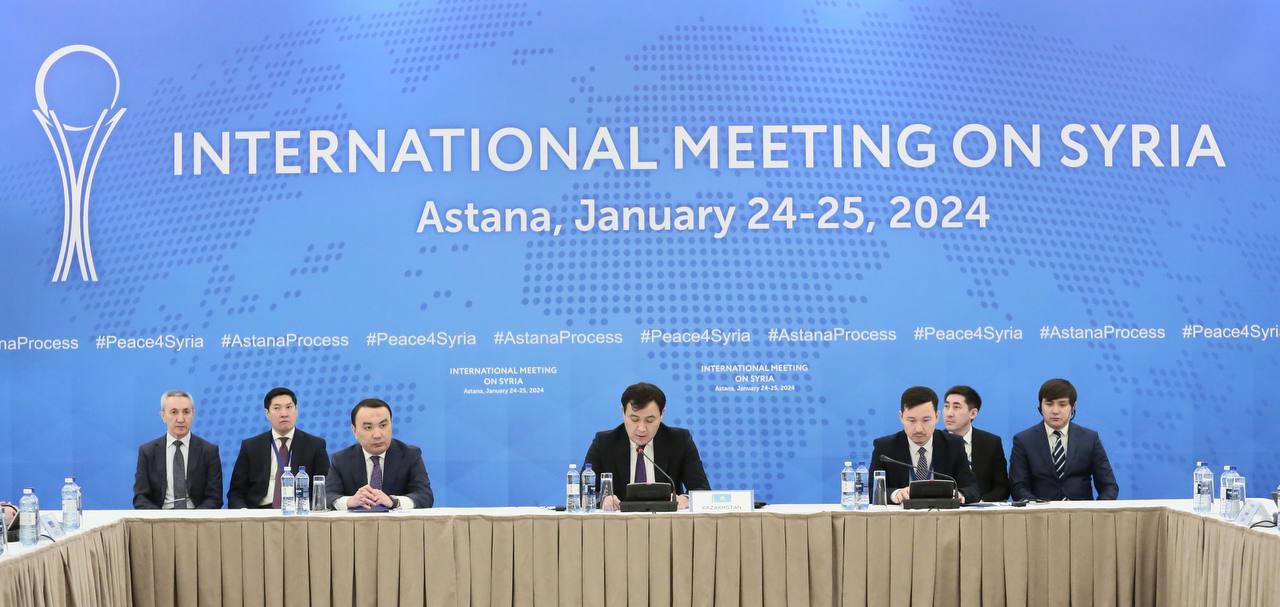
Delegations from Turkey, Russia, Iran, and the Assad regime convened today in Kazakhstan for the 22nd round of the Astana talks, aimed at discussing a potential path toward peace in Syria. Despite the discussions on political solutions, confidence-building measures, and the humanitarian crisis, Assad regime forces and their allies have continued to target civilian areas in northern Syria, with attacks reportedly escalating in the days leading up to the summit.
Kazakhstan’s Foreign Ministry confirmed that today’s agenda would focus on bilateral and tripartite consultations between the delegations, while a general session and press conference are scheduled for the second day of the conference, November 12. The ministry’s statement indicated that discussions would cover several critical issues, including reconstruction, the missing persons file, and the return of Syrian refugees.
As officials gather in Astana to discuss peace, the Assad regime and its allies are continuing their bombing of civilian infrastructure in the liberated areas. On Sunday, just hours before the talks, regime forces shelled several villages in the Idlib and Aleppo countryside, causing significant damage to homes, and agricultural areas. According to local sources, artillery and missile fire targeted the town of Nayrab and the village of San in eastern Idlib, as well as Balanta and Maklabis in western Aleppo.
Civilians in Idlib reported a series of explosive-laden FPV drone attacks and artillery bombardments by the regime, striking olive harvesting sites and workshops, which serve as a lifeline for many rural residents. The Syrian Civil Defense, also known as the White Helmets, described Assad’s tactics as a “deliberate targeting of civilians,” emphasizing the specific threat these attacks pose to farmers. “These attacks prevent civilians from accessing their fields and harvesting crops, with serious consequences for their livelihoods,” the organization stated, condemning the aggression.
Local activist Muhammad al-Mustafa told Al-Araby Al-Jadeed that the shelling has become a daily threat to those in Idlib and Aleppo. “These attacks come despite an apparent Russian-Turkish agreement to de-escalate violence in northern Syria ahead of the talks,” al-Mustafa said. Civilian sources reported injuries among farmers and other residents, further indicating the gap between the conference’s peaceful rhetoric and on-the-ground realities.
The sustained attacks by regime forces and their allies have caused extensive harm to civilians in northern Syria. As of Sunday, reports indicated continued shelling in the southern Idlib countryside, where artillery and missile strikes injured several residents and disrupted agricultural work. The Syrian Observatory for Human Rights (SOHR) documented the impact on villages near Fleifel and Maarbalit, which faced indiscriminate artillery shelling and aerial drone attacks.
Further complicating the picture, Russia conducted joint military drills with Assad regime forces in Aleppo on Saturday, a calculated display of military strength on the eve of the Astana talks. According to a statement from the Russian Defense Ministry, the exercises included simulated attacks on “ground targets, drones, and fortifications” in Syria’s northern regions. The drills involved Russian Su-34 and Su-24 tactical aircraft, which practiced low-altitude flights and nighttime strike operations, a show of support for the Assad regime’s ongoing military campaign.
Russian and regime forces have held multiple joint exercises in Syria this year, including naval drills near the Tartus base in September, underscoring Moscow’s commitment to projecting strength in the region.
The latest round of Astana talks presents an opportunity for key stakeholders to address Syria’s decade-long conflict, but the discrepancy between the diplomatic language of “peace” and the reality of violence on the ground casts doubt on the process’s prospects. Observers note that while Russian, Iranian, and loyalist forces have shown unity in military action, diplomatic progress remains limited, as repeated ceasefire agreements have yet to translate into lasting peace for the region.
Whether the Astana summit will lead to any substantive breakthrough remains uncertain. Humanitarian groups continue to call on the international community to hold the Assad regime and its allies accountable for attacks on civilian infrastructure, pressing for an end to the violence that undermines Syria’s stability and endangers the lives of millions of civilians.

